Climate
-
 Climate
ClimateChanging climate now threatens northern lakes year round
Lakes in northern climes are getting warmer, and that’s not good for people, plants or animals.
-
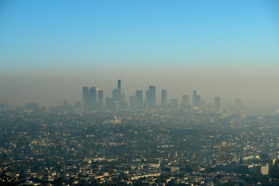 Environment
EnvironmentCOVID-19 cut pollution in 2020, warming the atmosphere
Pandemic-related lockdowns briefly warmed the planet. The reason: The cleaner air carried fewer planet-cooling aerosols.
By Sid Perkins -
 Tech
TechTraining AI to be really smart poses risks to climate
As artificial intelligence models grow larger and consume more energy, experts have begun to worry about their impact on Earth’s climate.
-
 Climate
ClimateScientists Say: Weather
The state of the atmosphere in a specific place and time is weather. Over a long time, the weather conditions in an area will reveal its climate.
-
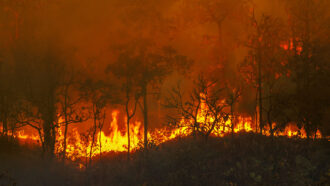 Climate
ClimateCan wildfires cool the climate?
Severe wildfires are becoming more common. Science is showing that the tiny particles they release into the air can alter Earth’s temperature — sometimes cooling it.
-
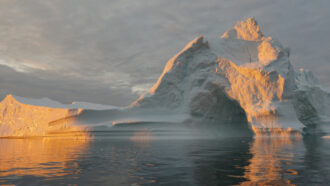 Climate
Climate2020 was warmest year on record for Earth’s oceans
2020 continued the trend of record-breaking heat for the world’s oceans. The three previous warmest years on record were 2019, 2017 and 2018.
-
 Earth
EarthLet’s learn about snow
Snow is more than just frozen water vapor. Scientists are studying everything from its shape to other planets where snowflakes fall.
-
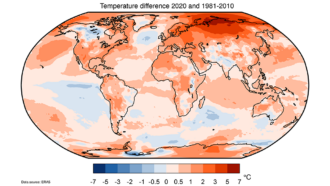 Climate
ClimateAnalyze This: 2020 ties with 2016 for hottest year on record
Last year capped the warmest decade on record. It coincided with a growing increase of warming greenhouse gases in Earth’s atmosphere.
-
 Chemistry
ChemistryA new catalyst turns greenhouse gas into jet fuel
The catalyst is an improvement over its predecessors. Made of cheap materials like iron, it produces jet fuel in a single step.
-
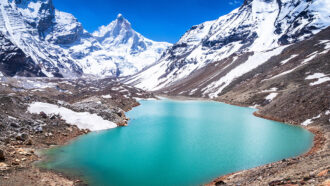 Environment
EnvironmentSurprising long-haul dust and tar are melting high glaciers
Dust and tar blown onto high mountains, like the Himalayas, boost the melting of snow and ice far more than scientists had realized. Here’s why.
By Sid Perkins -
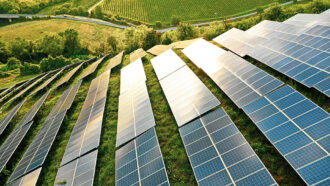 Climate
ClimateLet’s learn about solar power
Solar power is a way to harness energy from the sun, and lessen our reliance on fossil fuels.
-
 Climate
ClimateStudent scientists work to help all of us survive a warmer world
From glaciers in the refrigerator to a rover in the field, here’s how young scientists are looking to help us adapt to climate change.